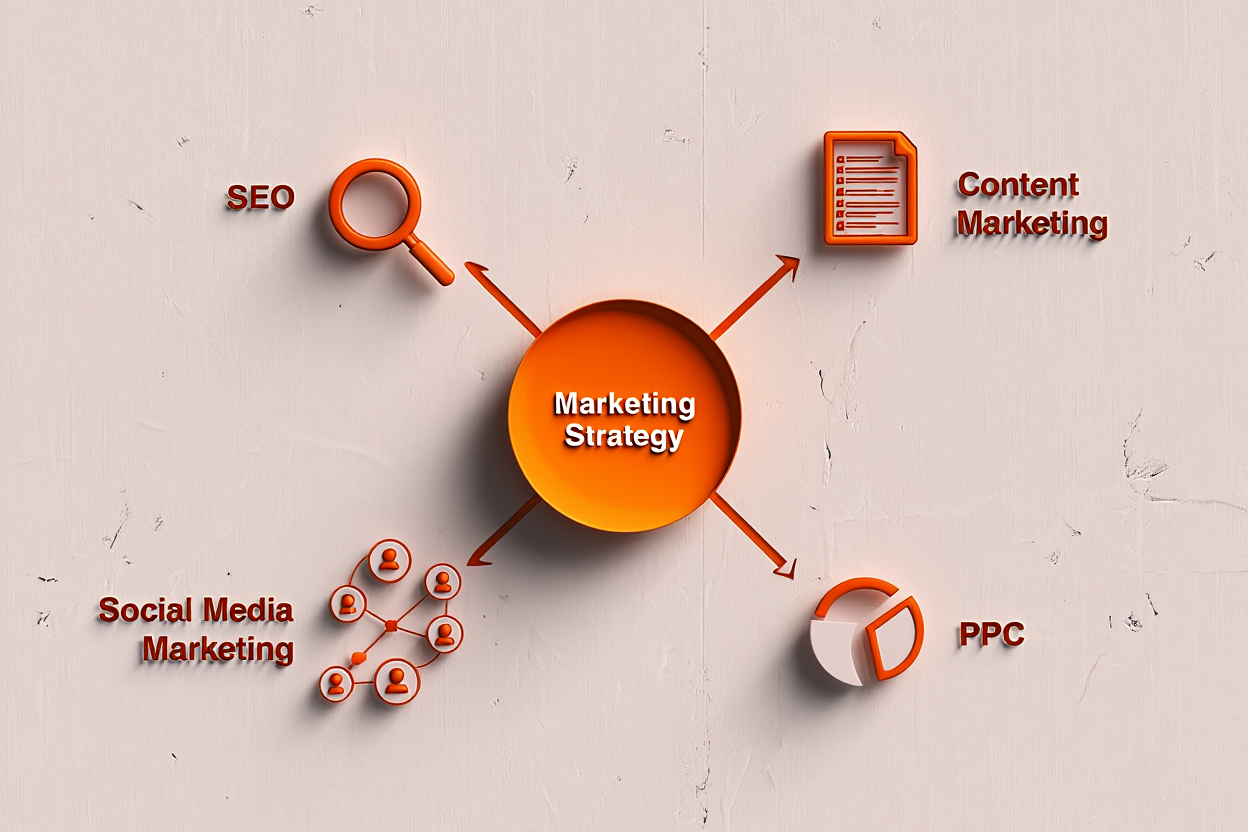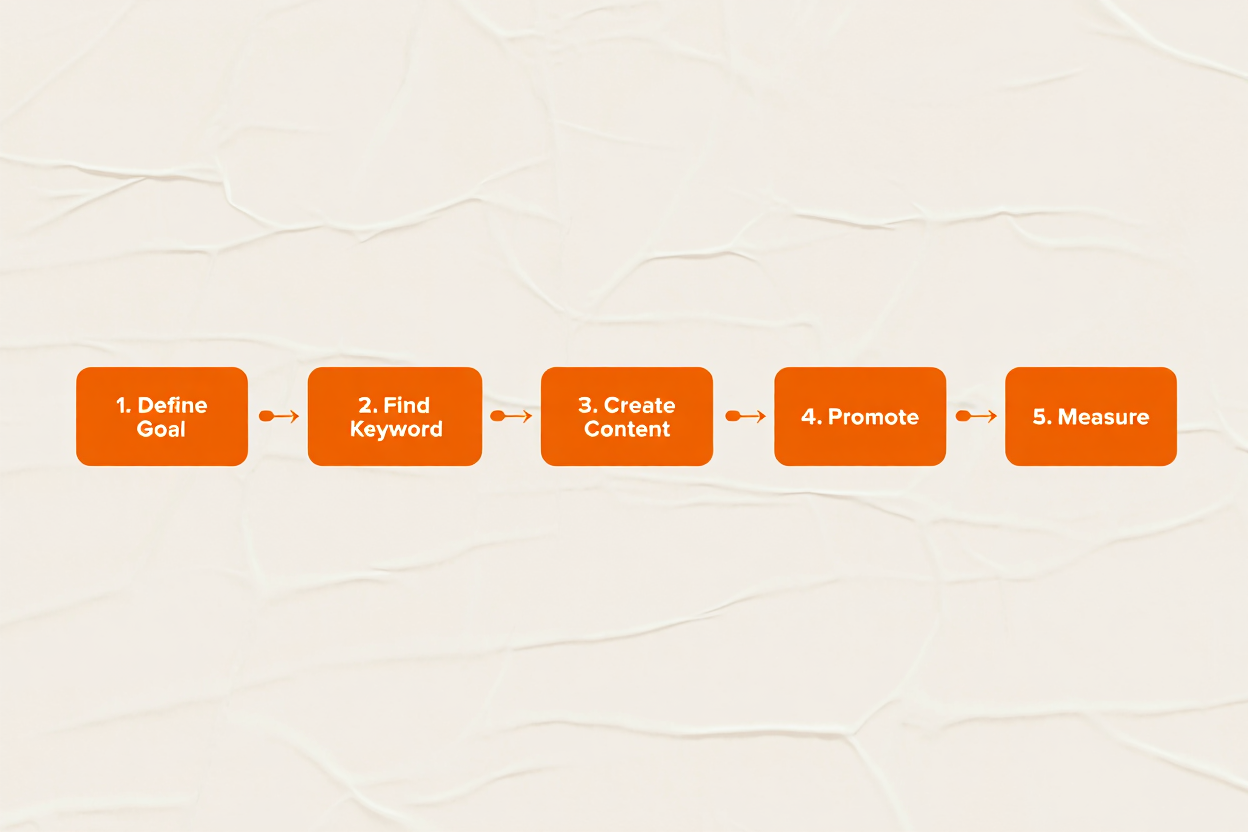
So, You Want to Learn Marketing on Your Own? Here's the Definitive Guide.
Key Takeaways
- Self-Education in Marketing is a Marathon: Learning marketing on your own is a long-term commitment to continuous learning in a constantly evolving field, not a weekend project.
- Success is Multifactorial: Your journey will be shaped by your background, dedication, and ability to learn from data. There is no single path, but our guide provides a clear direction.
- Master the Fundamentals First: Before chasing trends, you must understand core principles: customer psychology, market research, and how to measure results. The tools are secondary to the strategy.
- This Guide is Your Roadmap: We provide a structured framework covering the mindset, core disciplines, tools, and a step-by-step guide to launching your first campaign, all through the lens of proven strategies we use at Parasees.
The question comes up a lot, whispered in founder communities and typed into search bars at 2 AM: "Can I learn marketing on my own?" It’s a question born out of necessity for many entrepreneurs and professionals looking to add a powerful skill to their arsenal. The simple answer is yes. The more honest answer is that it's a demanding but profoundly rewarding goal.
At Parasees, we believe that a deep understanding of marketing is the key to unlocking sustainable growth. The path of a self-taught marketer is less about formal classrooms and more about relentless curiosity, hands-on experimentation, and the humility to learn from what inevitably doesn't work. This guide won't just tell you it's possible. It will show you how.
1. A Reality Check: Can You Really Teach Yourself Marketing?
Before we dive in, let's set realistic expectations. Marketing isn't a single skill; it's a collection of disciplines. It spans the creative—like writing compelling copy—and the analytical, such as dissecting campaign data to understand customer behavior and measure return on investment. You're not just learning to sell; you're learning to build relationships at scale.
Your journey will be shaped by:
- Your Starting Point: A background in sales, data, or even psychology gives you a head start.
- Your Access to Tools: While many enterprise-level tools are expensive, the ecosystem of free and "freemium" tools is more than capable of getting you started.
- Your Commitment: This is non-negotiable. The marketing world is not static. I learned this the hard way. One of my first ventures involved an ad campaign that cost over a thousand pounds and brought in exactly two leads. That failure forced me to stop guessing and truly commit to learning the fundamentals—the same fundamentals we now teach in the Parasees Marketing Academy.
2. The Marketer's Mindset: The 'Why' Before the 'How'
Many aspiring marketers jump straight to tactics: "Should I be on TikTok? How do I run a Facebook ad?" These are the wrong first questions. The right question is always: "Who is my customer and what do they truly need?"
Before you learn a single tool, you must grasp customer psychology. Create a Customer Avatar (or buyer persona). This is a semi-fictional representation of your ideal customer. Give them a name, a job, and a list of their problems and goals. Everything you do—every blog post, every email—should be created with this person in mind.
Ready to Master Marketing?
Don't just learn marketing—master it. The Parasees Marketing Academy offers structured courses, hands-on projects, and expert mentorship to accelerate your journey from beginner to pro.
Enroll in the Academy Today3. The Core Disciplines: Your Marketing University Syllabus
Once you know your customer, you can start learning the channels to reach them. Here are the foundational disciplines we focus on in our marketing services:

- Search Engine Optimization (SEO): The science of getting your website to appear in search results. It’s about signaling to Google that you are a relevant, authoritative answer. This is a cornerstone of long-term organic growth.
- Content Marketing: Creating and distributing valuable content to attract and retain your audience. Instead of pitching, you provide value upfront to build trust. The goal is to become a trusted resource, so when your audience is ready to buy, they think of you first.
- Social Media Marketing: Choosing the right platforms where your customer spends their time and engaging them in a way that feels native. For a B2B company, this might be LinkedIn. For a visual brand, it might be Instagram.
- Paid Advertising (PPC - Pay-Per-Click): Paying for ads on platforms like Google or Facebook. While it can deliver results quickly, it's also the fastest way to lose money without a clear strategy. It's best tackled after you have a firm grasp of your customer.
4. Building Your Toolkit: Essential Free & Freemium Resources
You don't need an enterprise-level budget. These tools are powerful enough to build a solid foundation.
- For Organization: Trello is a visual project management tool perfect for creating a content calendar.

- For Analytics: Google Analytics is non-negotiable. You must install it on your website from day one to understand your audience and track performance.

- For SEO: Tools like Ubersuggest (free version) are great for beginners. As you advance, you might consider more powerful platforms like Semrush or Ahrefs, which we use for our clients at Parasees.

- For Design: Canva's free version gives you access to thousands of templates for professional-looking social media posts and blog headers.

5. Your First Campaign: A Step-by-Step Walkthrough
Theory is great, but marketing is learned by doing. Here is a simple, five-step content marketing campaign:

- Define Your Goal and Audience: Let's say your goal is to get 10 new email subscribers. Your audience is the customer avatar you created.
- Choose Your Core Topic and Keyword: What is one major question you can answer for your audience? Use an SEO tool to find a relevant keyword.
- Create Your Content "Pillar": Write the most comprehensive, helpful blog post you can on that topic. At the end, offer a free, downloadable template or checklist (a "lead magnet") in exchange for an email address.
- Promote and Distribute: Publishing is not the last step. Share your post on social media and in relevant online communities.
- Measure and Learn: Check Google Analytics. How many visitors? Where did they come from? How many signed up? This data is gold. Use it to refine your next campaign.
Knowing Your Limits: When to Call in a Professional
The self-learning path doesn't mean you have to do everything yourself forever. Part of being a smart business person is knowing when to call in reinforcements.
- For specific tasks: Hiring a freelancer on a platform like Upwork can be very efficient.
- For strategic guidance: If you feel lost and need a clear roadmap, hiring a consultant for a few hours can provide immense clarity.
- For full management: When your business grows and you need expert execution, it might be time to partner with a marketing agency like Parasees Marketing Group. We can handle the complexities while you focus on running your business.